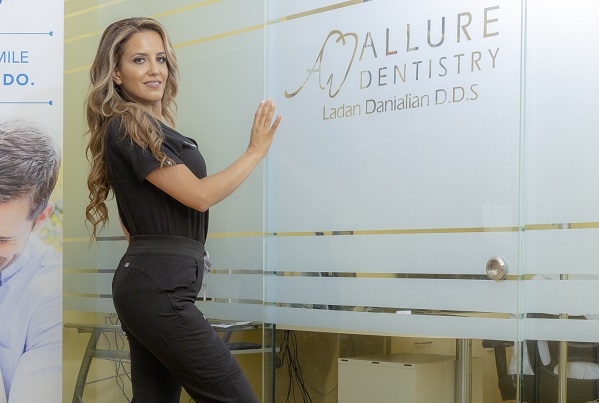3 Questions to Ask Your Dentist About Dental Anxiety

The fear of the dentist, often known as dental anxiety, is the leading cause of untreated tooth problems, among other things. The following are a few questions that you can ask your dentist regarding dental anxiety. Perhaps the answers will help you join the group of patients who do not mind going to the dentist.
What is dental anxiety?
Dental anxiety, sometimes referred to as dentophobia or odontophobia, is a sense of unease that occurs whenever a person considers dental procedures or visits a dental office. It may also mean that this person has a fear of dentists and other dental professionals. Such fear frequently prevents certain patients from visiting the dentist regularly. In some circumstances, these people never see a dentist in their lives due to their severe level of dental anxiety. Others who struggle to visit the dentist may eventually manifest their nervousness by being sick in the waiting area or unable to sleep the night before their appointment. Some individuals may cry or find it hard to breathe when the dentist places dental objects in their mouth during the dental treatment.
Anyone can suffer from dental anxiety, ranging from children who have had negative experiences with dentists and have grown to be excessively afraid of dental treatments to people who have never visited the dental office. Some people may also have another form of anxiety or panic disorder that may add to their fear of dental treatment.
What are the causes of dental anxiety?
People fear and avoid going to the dentist in specific situations because of a previous traumatic experience. Previous dental trauma is only sometimes the case, though. Many individuals with dental anxiety may have the following:
- Feeling embarrassed or helpless: Some people feel uncomfortable or vulnerable when a dentist invades their personal space while lying in the dental chair. Others may also feel embarrassed about the state of their teeth or their breath.
- Fear of injections or the injection not working: A common fear that many people have is the fear of needles, particularly when they think about a dentist inserting a needle into their gums. In addition, others may fear that the anesthesia is insufficient or will not numb their mouth before the treatment begins. They may also fear side effects of numbing agents like "fat lips," feeling faint and dizzy, or nausea.
- Fear of pain or discomfort: While there have been many dentistry advances to help make dental procedures less painful or pain-free, many people still fear feeling pain or high levels of distress at the dentist. This anxiety generally originates from a painful or unpleasant prior experience, and it can also come from the negative stories shared by others.
Although these are the most common reasons for dental anxiety, there are others. For example, some people may have anxiety from sensory overload from the sound of equipment or the smell of dental chemicals. They could also find sitting in a dental chair difficult due to past head and neck injuries.
What effect does dental anxiety have on oral health?
Dental anxiety stops patients from seeing the dentist regularly. Doing so increases the risk of developing significant dental problems that will need more invasive treatments and emergency care. This condition is known as the "vicious cycle of dental anxiety," in which people are so afraid of getting a dental problem that they wind up getting it anyway because they were too anxious to take steps to avoid it initially. The treatment they eventually receive will also likely be more intense than the initial dental visit.
The good news is that most complex dental disorders are avoidable. Routine dental check-ups, screening X-rays, and cleanings can help dentists discover issues early, requiring less invasive and easier treatments.
Final note
If going to the dentist makes you apprehensive, remember that you are not alone. Dentists daily encounter numerous patients who are afraid of dental treatments. Fortunately, they can provide tips and take steps to alleviate your worry and effectively deal with it. Discussing your fears with your dentist is the key to coping with dental anxiety. Knowing your fears, your dentist can find the most effective ways to reduce your anxiety and help you feel more comfortable during your appointment. In addition, by working with your dentist, you can develop a healthy relationship of communication and trust, which may help alleviate some of your dental anxiety.
Do not be frightened or embarrassed to approach your dentist for assistance in overcoming your dental anxiety. Dental professionals have received extensive training and are well-equipped to address patient anxiety. They can use different methods to help alleviate fear, such as coming up with a signal to indicate discomfort or communicating each step of the procedure, so you know what to expect. Ignoring dental appointments due to anxiety can cost you more in the future and cause even more fear. Take control of your dental anxiety today.
Request an appointment here: https://www.alluredentistry.com or call Allure Dentistry at (310) 683-5321 for an appointment in our Los Angeles office.
Check out what others are saying about our dental services on Yelp: Dental Anxiety in Los Angeles, CA.
Recent Posts
If you have stained teeth, you need to know that a dental practice can often help. While everyone would love to have white teeth like Hollywood celebrities, that is just not realistic. After all, these individuals have the means to get implants and veneers, while most people do not. Keep reading to find out more…
Your dental practice might have already told you that sugar is horrible for both teeth and gums. That includes candy, cookies, cake, and pies but also sweet sodas. The average person in the U.S. drinks almost 40 gallons of soda a year. That alone keeps a dental practice busy. With that level of consumption, it…
Getting a dental practice at a dental practice is a critical component of having better oral health. Many complications could arise from not getting regular visits. The dentist can find these issues early on, making the treatment plan better. Patients should have a checkup every six months or more if there are other issues.Patients should…
A dental practice can elevate one’s dental health. Being gifted with good teeth does not mean that they will last forever. Once permanent teeth are set in, maintaining dental health is crucial. Extending that care into one’s home makes sure that teeth and gums keep off dental problems. Here are some tips for practicing proper…


